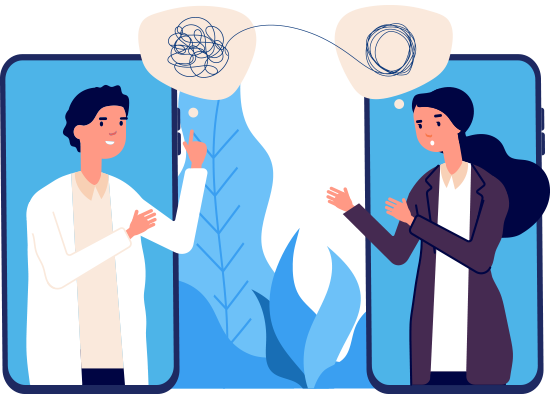What is addiction?
Do you automatically reach for substances or addictive behaviors to wind down when you’re stressed, or to avoid an unpleasant experience? Have you started to notice consequences like missing work, incurring new health problems or fighting more with your partner? Have you tried stopping, but find that you can’t? If so, it may be time to take a closer look at your patterns.
Addiction is a biologically based brain disorder. Because it causes changes in neural pathways that become engrained over time, and because some people are genetically predisposed to this kind of brain change, it can be extremely difficult for people to stop using on their own. That’s why addiction causes us to continue doing things even when they have negative impacts on our lives. Quitting involves far more than simply choosing to – though that is an important first step.
It can be difficult for anyone to admit that they have a problem. But addiction can sneak up on us before we even know what’s happening. And because it shows up differently for each person, it can be very difficult to see when we’re in its grasp.

What are the types of substance addiction?
While addiction is often thought of as a choice or a character flaw, the truth is that it affects people from all walks of life. Addiction can involve physical or psychological dependence on substances, such as:

Hashish and marijuana

Opioids (prescription painkillers)

Benzos (Xanax, valium)

Meth (shabo, crystal)

Heroin

Cocaine

Alcohol
What are the types of process addiction?
While most people would relate addiction with substances, addiction can also happen without using any. These addictions are common and can give an individual the same emotional high as a substance would, which keeps the individual locked into that behavior. Process addictions are classified as compulsive and addictive behaviors that are negative to a person’s well-being. In spite of the negative results, an individual will continue the addictive behavior and may feel disgrace and regret after doing so. The following are a few common examples:

Gambling

Sex and love

Internet and gaming

Binge eating
Can therapy help with addiction?
Fortunately, long-term recovery is entirely possible with professional help. An addictions counselor can guide you through every step of the treatment process, and connect you to support groups and resources that help you maintain long-term recovery. They can also help you address the underlying problems that led to your addiction.
You deserve to live the life you want – and with the right guidance and support, it’s completely within your reach.
You don’t have to go through it alone. Talk to one of our qualified therapists and counselors.



